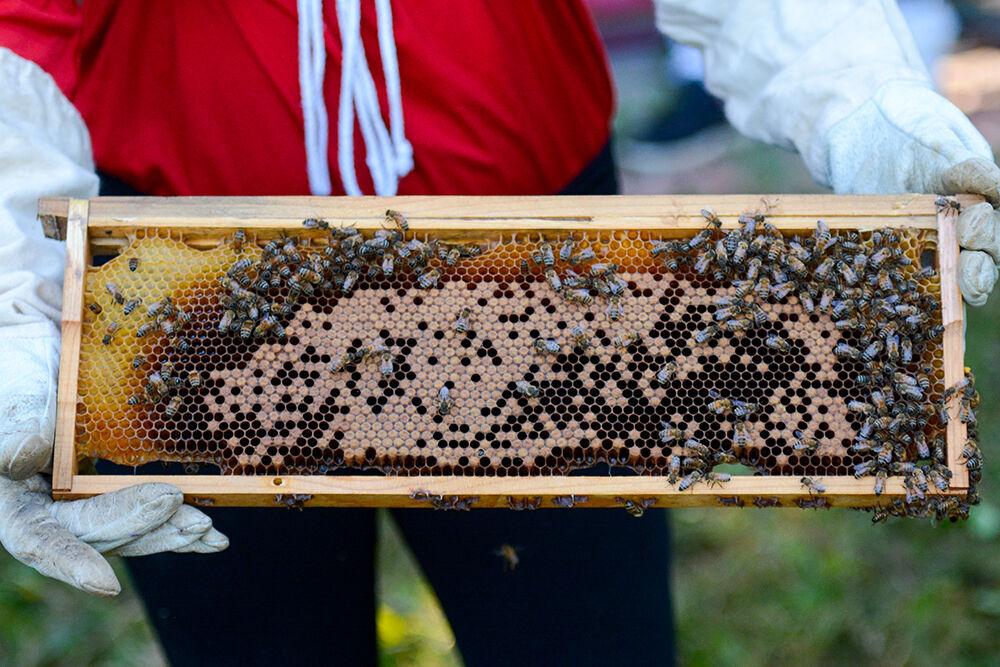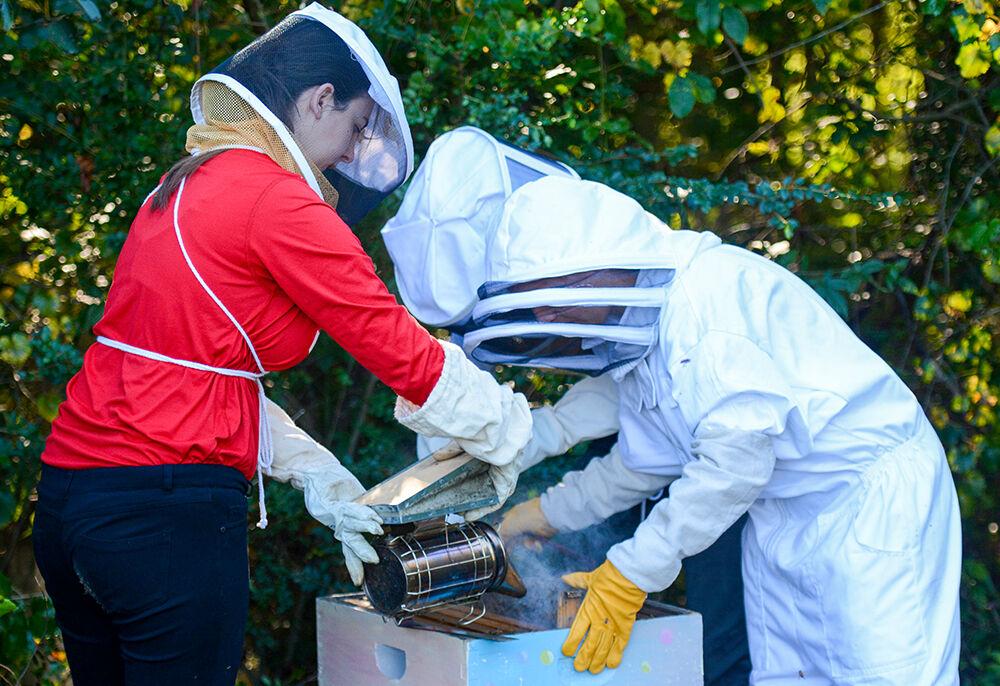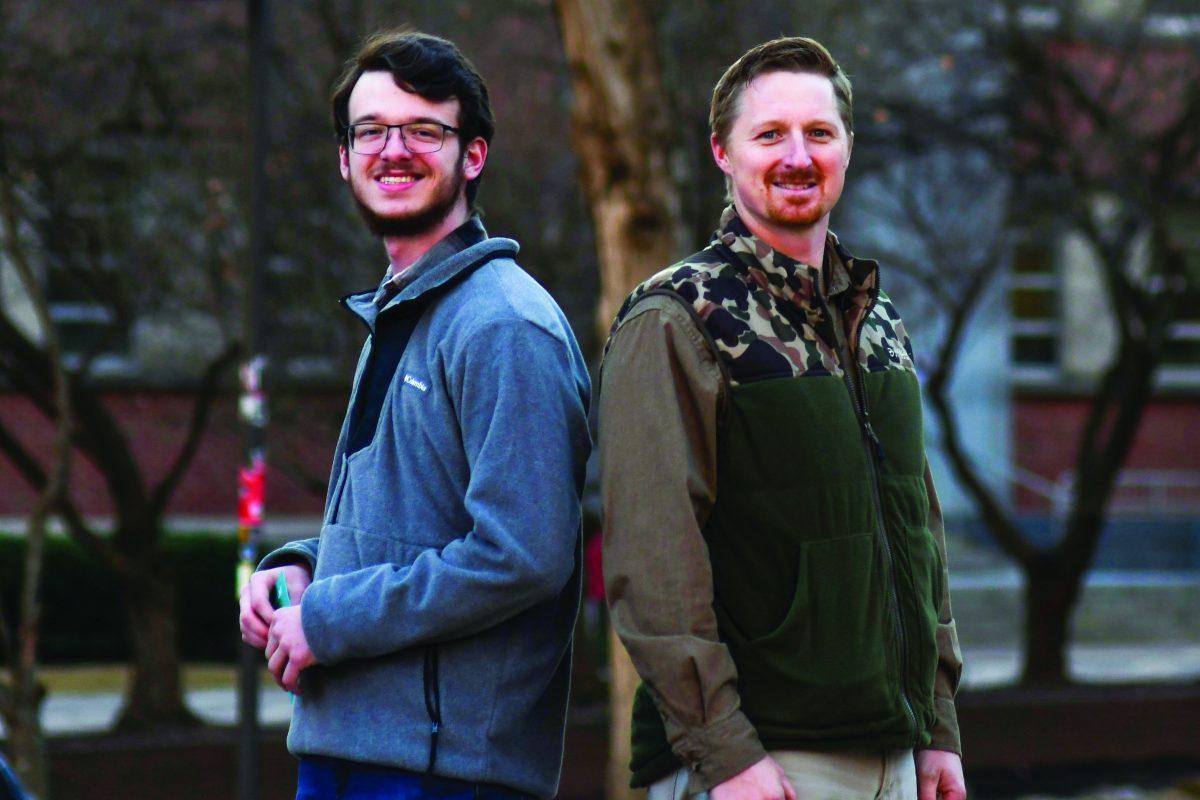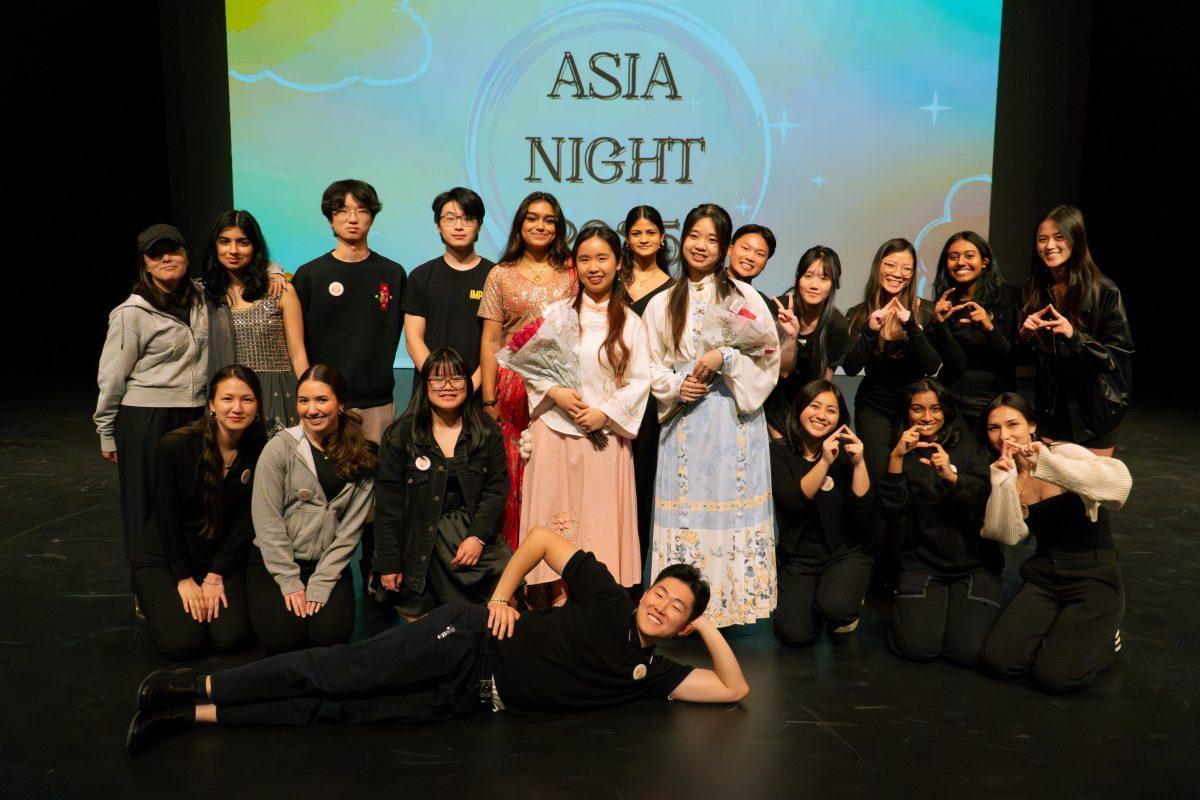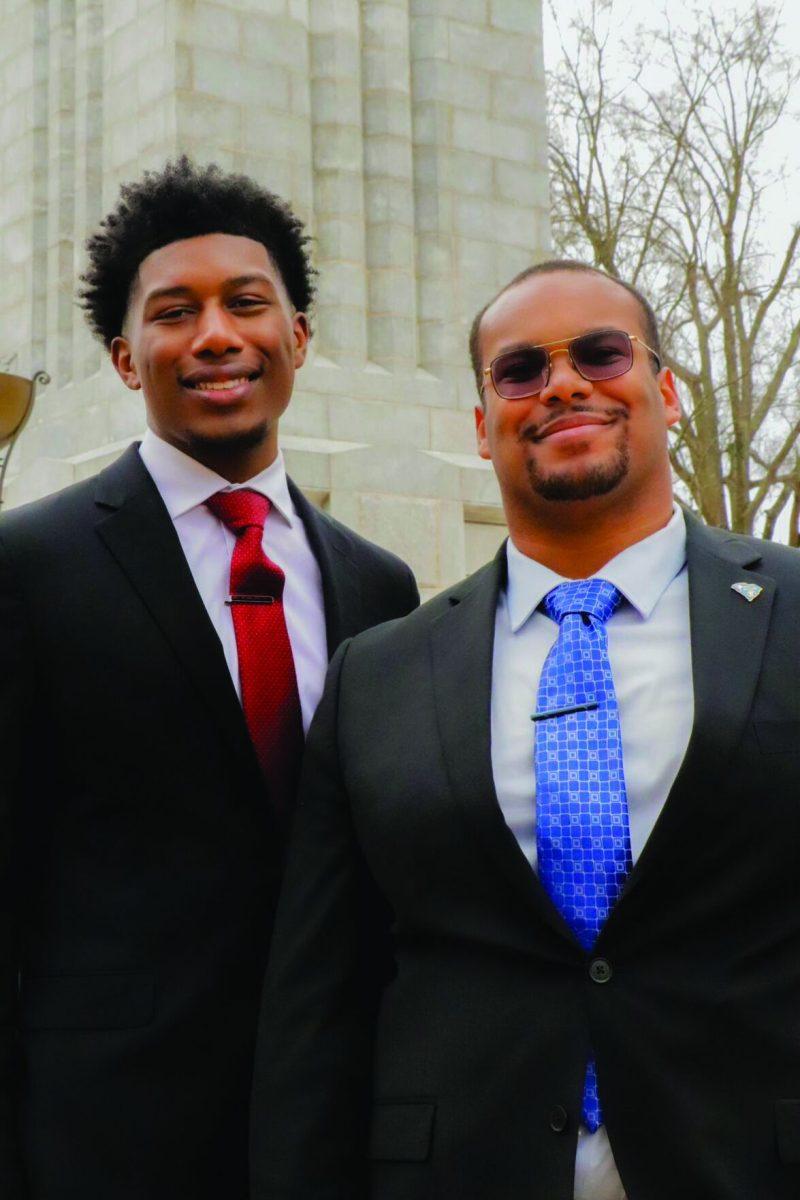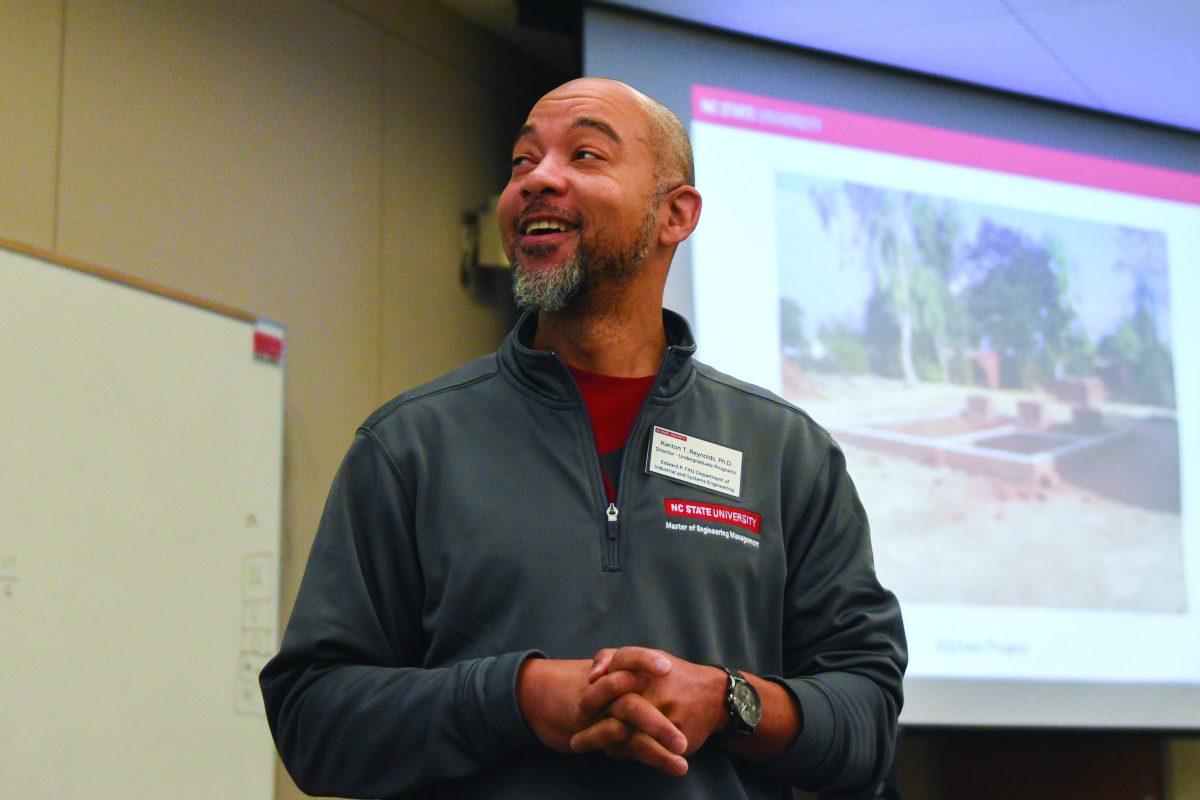As students are recovering from a virtual college experience, engagement in the NC State community is growing. There are many unique opportunities that allow students to be involved at NC State, one of them being the Beekeepers Club.
The Beekeepers Club is an informative group at the University, offering educational meetings and opportunities regarding the care and science of bees, as well as field trips, functions and seminars. The club has been active at NC State since 2014.
Every Sunday morning, the executive board of the club meets to check on the hive at the NC State Agroecology Education Farm. The club also meets twice a month and features guest lecturers and informative sessions on bee care and science. For example, the club’s faculty advisor, David Tarpy, gave a presentation on his research on honey bee health and behavior.
Not only does the club meet to discuss the research and science of bees, but the club offers guidance on different career opportunities available in beekeeping.
“In the past, we have had beekeepers who either sell honey or other hive products as their career,” said Kaitlyn Sage, a fourth-year studying animal science and co-president of the club. “A lot of people think it is a hobby and not a career, so we try to have people from all over the industry come and talk.”
According to Sophia Boyd, a fourth-year studying zoology and environmental science and co-president of the club, guest speakers are an important part of the club.
“We do try to have a guest speaker every meeting, although this semester will be a little different because of the pandemic,” Boyd said.
The club is trying to take advantage of virtual meetings, however, and engage beekeepers across the country.
“We might have some Zoom meetings this semester, so we can have guest speakers who normally couldn’t travel for an in-person meeting,” Boyd said.
While the meetings themselves offer a lot of information on beekeeping, there are a lot of opportunities for members to have hands-on experience with the bees.
“We have hive days with our members,” Sage said. “In the fall, we usually only have one or two, but in the spring, we try to get three or four hive days in.”
Hive days consist of members coming to the hive and learning about beekeeping in an interactive way. This can mean watching executive members demonstrate how to care for the hive and how to complete important tasks, such as looking for intruders in the hive or feeding the bees. The executive board is trying to plan a hive day for this upcoming month, so members can make a trip to the hive before it gets too cold outside.
The club also participates in community activities, such as Bug Fest. Bug Fest is an annual event at the North Carolina Museum of Natural Sciences, which took place Sept. 13-18, 2021.
“It was an expo with people from the community who are interested in bugs,” Sage said. “This year’s featured bug was the carpenter bee, so we brought out beekeeping stuff and did an expo for the kids and members of the community.”
As of right now, the club has over 30 members, and they are flexible when it comes to attendance.
“We have over 200 people on our email list,” Boyd said. “With that many people on the email list, there’s an average of 30 or so members depending on the event. If people miss meetings, we post the slides after, so it is okay.”
The club requires no previous experience, and about 90% of the club is at a beginner beekeeping level.
If students are interested in learning about beekeeping, the club takes members at any time, and there is no experience required. Students can email the club at beekeepersncsu@gmail.com if they are interested in joining.
Kaitlyn Sage, left, a fourth-year student in animal science, Erin McCluskey, center, a fourth-year student in genetics, and Sophia Boyd, right, a fourth-year student in zoology and environmental science, work together to stabilize the hive at the NC State Agroecology Education Farm, on Sept. 26, 2021. Sage used a smoker to simulate a fire that caused the bees to calm down and not see the beekeepers as a threat so that the frame could be safely extracted from the hive.


